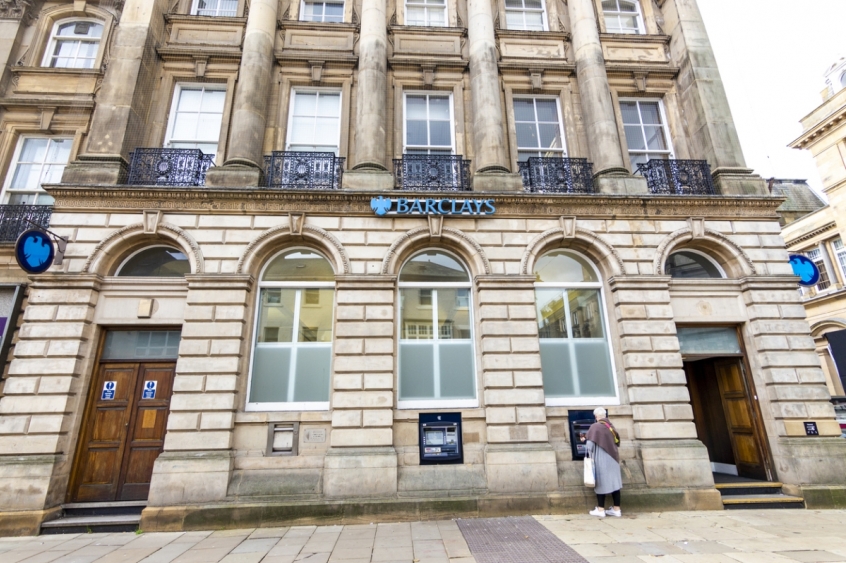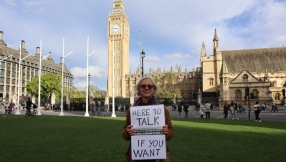
It's not straightforward when banks close Christian ministry business accounts. The first loss is the reputational damage that the action implies, whether or not it's intended. Regular donors have to be redirected, assuming all goes well in finding a new bank.
You'd think that with two months' notice of closure, there'd be enough time to make the transition to the next banking house but this hasn't been the case for Core Issues Trust (CIT), the UK's only charity that offers pastoral counselling and psychotherapeutic support for those wanting to move away from LGBT identities and behaviours.
One of our projects, The International Federation for Therapeutic and Counselling Choice (IFTCC) focuses on equipping those supporting such people. The IFTCC, however, remains bank-less, and in today's climate we wonder if we will ever find a bank account.
Taking Barclays Bank to court over their unilateral closure of the accounts of these two Christian initiatives was never going to be straightforward. Now, after three years, we have some satisfaction in the £21,500 plus legal costs they have agreed to pay us. No court can force banking services or other providers to reinstate accounts, and now we know who Barclays are, we probably wouldn't want to continue banking with them anyway.
All had been well with these two business accounts until Pride-in-lockdown decided to channel their energy into getting CIT removed from the Charity Commission in Northern Ireland. The evidence is there on social media. The National Secular Society and the British Humanist Association jumped on the bandwagon and the saga is recorded in the critical incident reports sent to the Charity Commission at the time, and the police report to the Police Service of Northern Ireland.
This was all necessary because of the physical threats against my family and staff, and the endless nuisance calls and vile materials sent to each of us for weeks on end. It was a difficult time because we were simultaneously permanently shut out of PayPal, Twitter, TikTok, Mailchimp and, of course, lost all our Facebook accounts. Never mind all of that. The real story is in the pathway back to being able to operate after cancellation, as a legitimate entity in the United Kingdom.
You'd think the Charities Aid Foundation's bank would be a likely option? Not so. Bank of Ireland? Forget it. Surely The Salvation Army's Reliance Bank? Not a chance. Well then, good old Revolut in the heartland of conservative Eastern Europe? Nope.
Community Guidelines are the issue - thou shalt not hold any viewpoint contradicting LGBT ideology. And that's just the basic banking. When it comes to merchant solutions (card machines and the like) World Pay refused us and more recently, the largest provider, Clover did the same - neither of whom will give reasons for denying access, having first sent glowing welcomes for promised new accounts. Who has the time to visit the Ombudsman? We can only assume they're all very highly-principled Stonewall-observant bankers. It's time for non-observant Christians to dig in and rise up.
The first hurdle Barclays threw at us was the jurisdiction issue. We shouldn't be bringing the case in Northern Ireland – everyone knows Barclays' head office is in England and that is apparently where the decision had been taken! How were we to know this and so commence a case in England?
However, the account had been opened, operated at Barclays in Lisburn, County Down, and that is where the organisations operationally are based. No matter, the case, they said, should only be heard in England because I had lawyers based in England. Fortunately, the county court judge wasn't having any of that and didn't strike out our case.
However, not content with their loss, the Bank appealed to the High Court and instructed King's Counsel. The case was set for appeal in the Belfast High Court and that's when it gets interesting. First, we claimed for £19,320.00, however we were prepared to enter into negotiations for less as is normally the case, when, would you believe it, we were offered more than we asked for. That's when it was time to draw stumps because we could not win more even if we took this to trial. We took the £21.5K with all our legal fees paid gratefully, along with no shared statement and best of all, no gagging order.
So as the UK is set to hear about the new government-mandated sexual identity legislation (aka 'conversion therapy' ban) let's wait and see how the Tories climb out of the hole that Theresa May's promise has dug for them.
Banning therapeutic choice, already controlled by the UK's Memorandum of Understanding which has included since 2014 a de facto ban on change-allowing work, is just evidence of the monocultures forbidding ideological diversity that have captured our institutions, including our banks.
I sense that the diversity that allows for ideological differences will provide the checks and balances that are now lacking. Lord Sumption, the former Supreme Court judge, was right when referring to the cancellation of the Free Speech Union's PayPal account saying "these ugly incidents ... should not be forgotten ... this problem is not going to go away". We intend to find a way whatever happens.
Dr Mike Davidson is founder of The Core Issues Trust.









